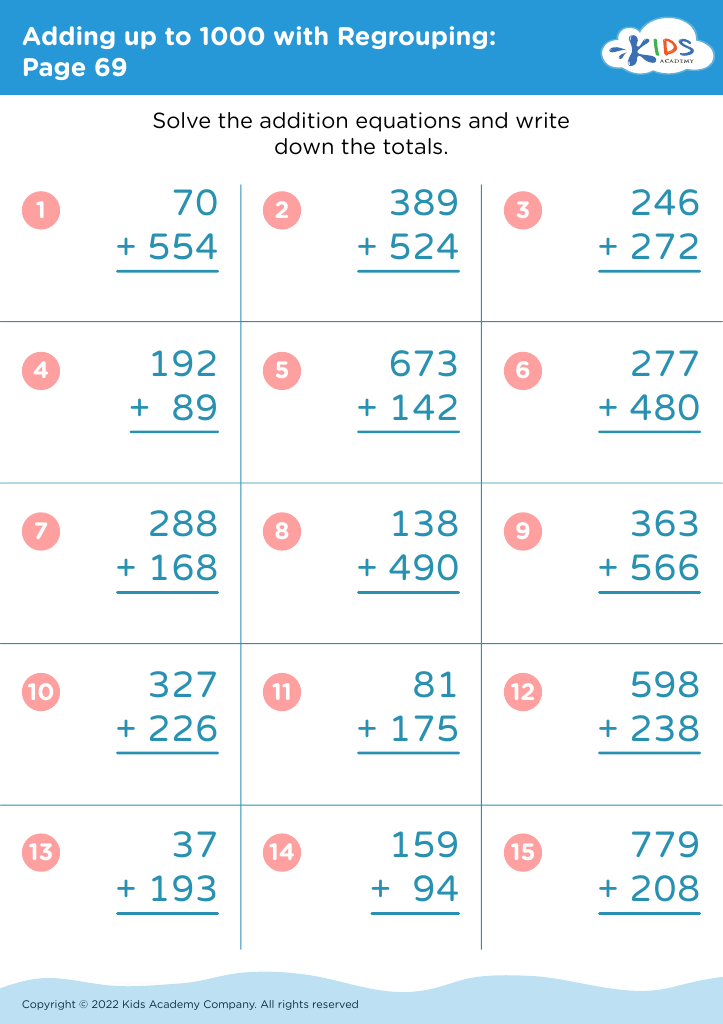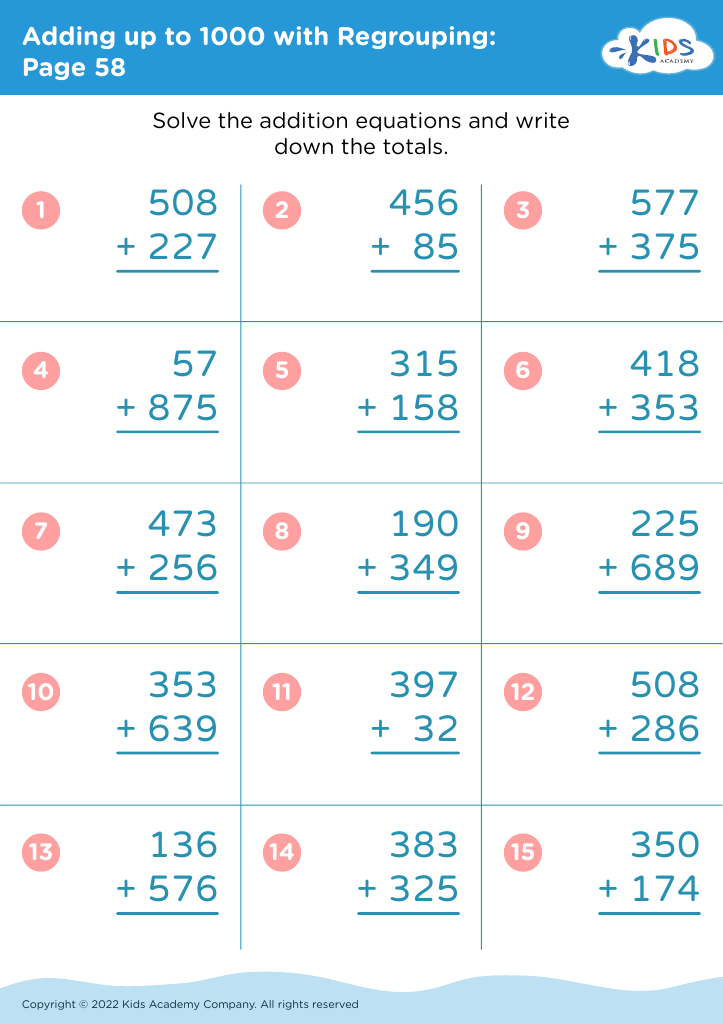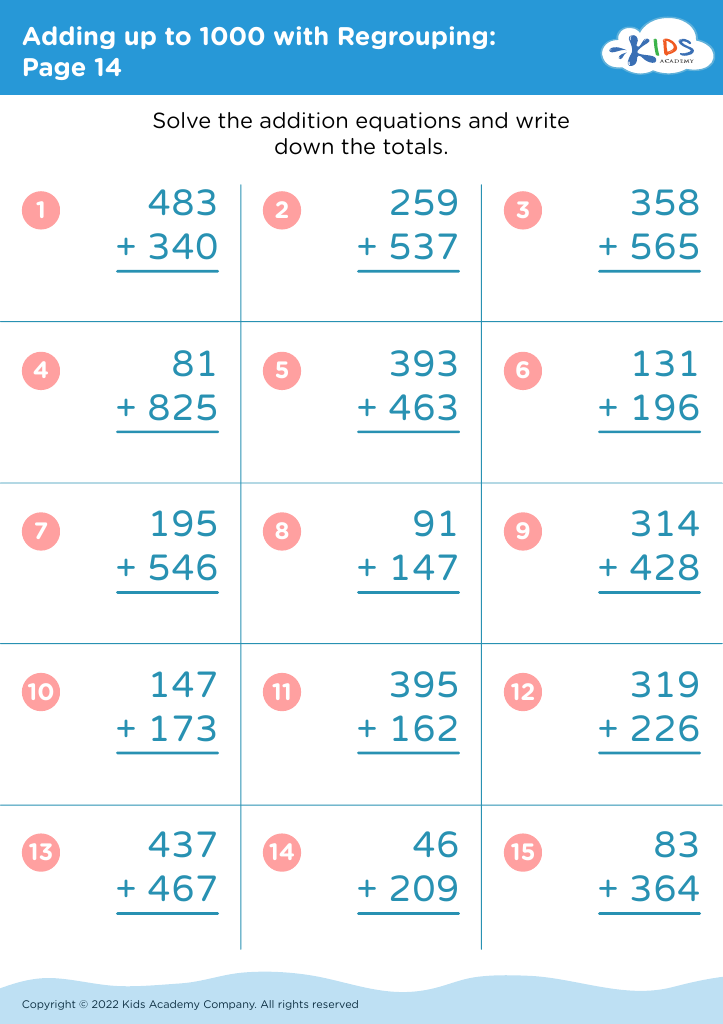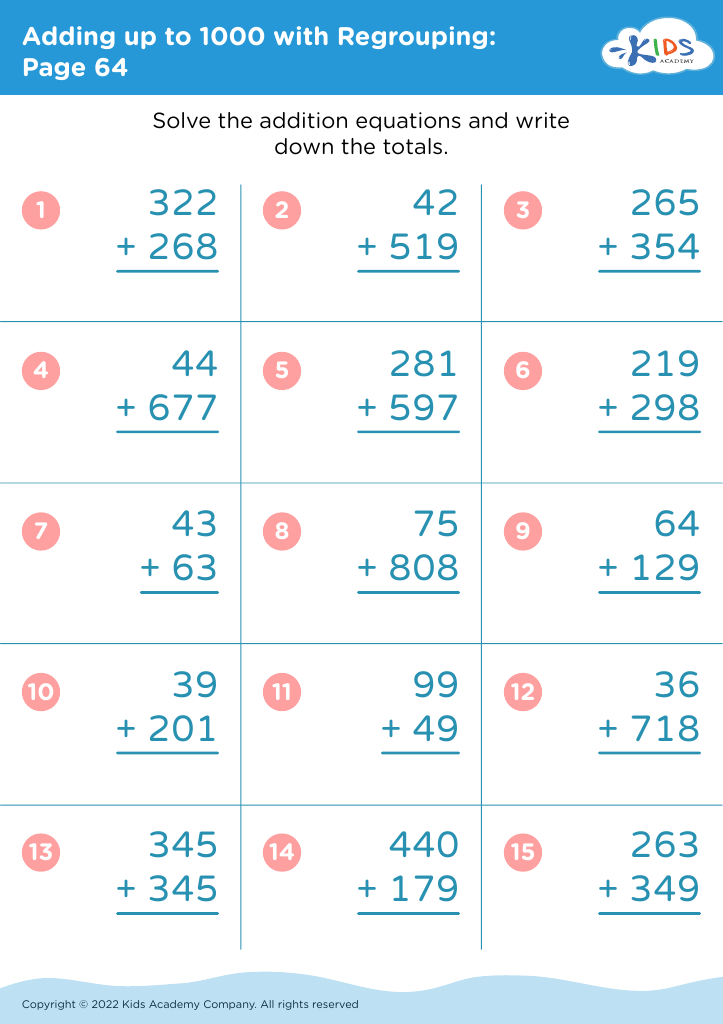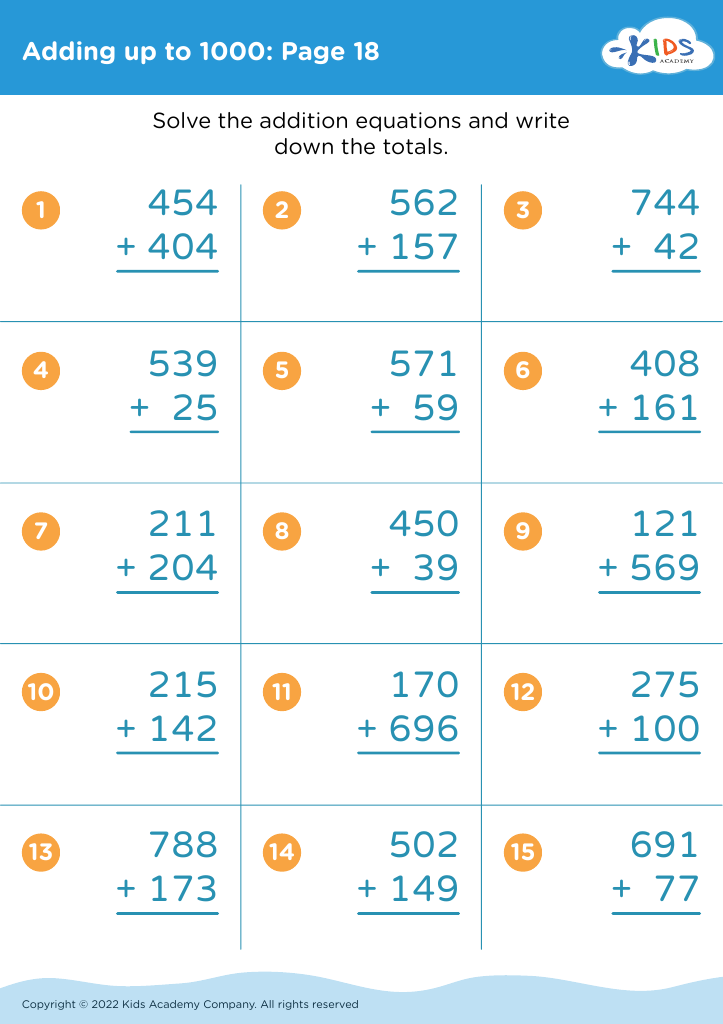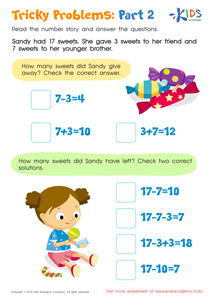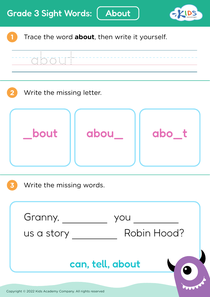Shape Recognition Grade 3 Adding up to 1000 Worksheets
11 filtered results
-
From - To
Discover engaging and educational "Shape Recognition Grade 3 Adding up to 1000 Worksheets" designed to enhance your child's math skills. Tailored for third graders, these worksheets blend shape recognition with advanced addition up to 1,000, fostering both geometric understanding and arithmetic proficiency. Each activity is crafted to provide a fun, interactive learning experience that keeps young minds intrigued. Ideal for classroom use or at-home practice, these worksheets support curriculum standards and encourage independent problem-solving. Boost your child's confidence and foundational skills with our comprehensive and enjoyable educational resources. Try them today and watch learning come to life!
Shape recognition and arithmetic skills, such as adding up to 1000, are fundamental competencies for early elementary students and form the bedrock for more advanced mathematical understanding. At this level, children develop their visual-spatial reasoning and numerical literacy, skills crucial for future academic success and everyday problem-solving.
Shape recognition introduces students to geometry, enabling them to identify, classify, and understand shapes and their properties. This lays the groundwork for more complex topics such as area, volume, and spatial relationships. Additionally, recognizing shapes enhances cognitive abilities like pattern recognition, critical thinking, and logical reasoning, invaluable across all subjects.
Arithmetic skills, particularly adding numbers up to 1000, solidify students' number sense, improving their ability to perform calculations accurately and efficiently. Mastery of basic arithmetic is crucial as it directly affects their competence in tasks such as measurement, probability, and algebra. Furthermore, proficiency in addition instills confidence in young learners, encouraging a positive attitude towards tackling more challenging mathematical concepts.
By supporting shape recognition and arithmetic learning, parents and teachers are fostering essential life skills, stimulating intellectual curiosity, and ensuring a robust foundation in mathematics. This comprehensive development is crucial for academic success, future career opportunities, and daily life tasks such as managing finances and problem-solving.





